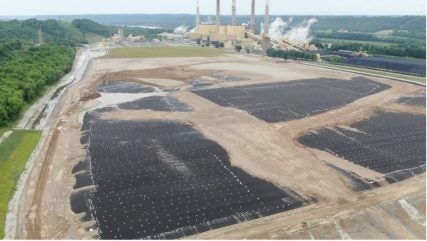
US PPL Corporation subsidiaries Louisville Gas & Electric Company (LG&E) and Kentucky Utilities Company (KU) are to undertake a feasibility study to explore locations and partnerships that could support nuclear energy. This will be based on earlier feasibility assessments at LG&E and KU’s coal-fired Ghent Generation Station in Ghent as part of ongoing efforts to evaluate all options for future replacement of ageing generation.
The four-unit Ghent station, with a net generating capacity of 1,919 MWe, is planned for phased retirement. Units 1&2 cill close first followed by units 3&4. The plant is within five miles of several industrial companies that could be potential process heat customers. PPL owns about 2,300 acres of land surrounding the Ghent site.
As with the earlier feasibility assessments at the Ghent Generation Station in Kentucky, PPL’s Research & Development team plans to partner with the Department of Energy’s (DOE’s) Gateway for Accelerated Innovation in Nuclear (GAIN) initiative, and nuclear design engineering company X-Energy.
The previous study determined that the Ghent site is suitable for a nuclear small modular reactor (SMR) plant, but would have potential size constraints for a larger nuclear reactor. Phase two of the study will explore alternative locations and industrial partnerships that could enable energy-intensive customers, including manufacturers and data centres, to achieve zero-carbon objectives while maintaining reliability and affordability.
“We understand that achieving our goal of net-zero carbon emissions will be challenging, and we continue to pursue an all-of-the-above technology strategy to replace ageing generation with a cleaner, more diverse energy mix capable of safely, reliably and affordably meeting our customers’ future energy needs and supporting continued economic growth,” said PPL President & CEO Vincent Sorgi.
“Nuclear energy is a carbon-free solution that has the potential to meet our customers’ needs and support manufacturing and data center growth, particularly if technology such as nuclear small modular reactors become more cost-competitive,” he added. “These in-depth studies are important to determining whether nuclear energy at our locations may be a viable solution moving forward.”
GAIN provides the nuclear community with access to the technical, regulatory, and financial support necessary to move innovative nuclear energy technologies toward commercialisation. GAIN’s mission is to support the development and deployment of advanced nuclear technologies.






